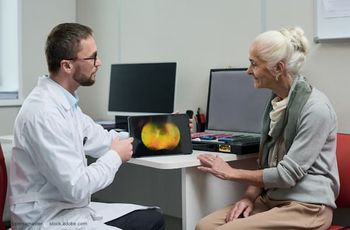
Early intervention helps with vision protection in macular degeneration
Retina specialist Priya Vakharia, MD, reveals promising ANX007 trial results, showing potential to prevent vision loss in geographic atrophy.
Priya Vakharia, MD, a retina specialist at Retina Vitreous Associates of Florida in Tampa Bay, presented findings from the ARCHER trial investigating geographic atrophy (GA) treatment for dry age-related macular degeneration during the 2025 Retina World Congress annual meeting.
"The ARCHER trial was a phase 2 trial that was looking at the treatment of geographic atrophy, secondary to dry [age-related] macular degeneration," Vakharia said. "In this trial, patients were randomized to either get ANX007 monthly, ANX007 every other month, or sham monthly, or sham every other month. And what I presented today at Rentina World Congress was actually looking at a key secondary endpoint in these patients, which is the 15 letter loss of vision, and doing a number needed to treat analysis, looking to see how many patients you would need to treat in order to prevent 1 case of vision loss. So just to kind of remind the listeners about the trial, the primary endpoint was change in GA lesion growth, which the ARCHER trial did not meet that primary endpoint."
While the trial did not meet its primary endpoint of reducing GA lesion growth, it revealed a significant secondary endpoint: prevention of 15-letter vision loss. The number needed to treat (NNT) analysis showed remarkable potential, with just seven patients treated preventing one case of advanced vision loss.
To contextualize the findings, Vakharia compared the ANX007 NNT of 7 to established therapies like statins (NNT of 125) and aspirin (NNT of 333), highlighting the treatment's promising efficiency. She emphasized the critical importance of early intervention, noting that extrafoveal disease progression rates are higher than foveal involvement.
"I think, first and foremost, I hope we find a treatment for GA that is really effective, not just slowing the rate of growth, but stopping it. I hope that we find a therapy that's really going to change the game for vision, because I think that's what all of us want for our patients and our family members. I hope that's where we're going in the field of ophthalmology. And, you know, I think we can do it. I think we have a lot of great clinical trials, a lot of great research, and it is definitely possible.
Newsletter
Keep your retina practice on the forefront—subscribe for expert analysis and emerging trends in retinal disease management.


































